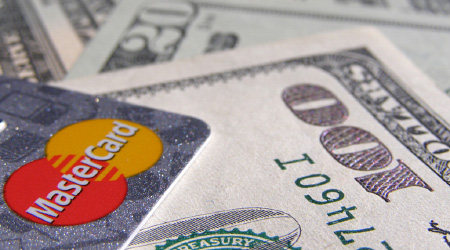7 Tips On Improving Your Credit Score

Your credit score can be a blessing or a curse depending on how good it is. A good credit score will help you to get approved for loans and services. It will also allow you to get a better interest rate on your debt. A bad credit score can really hamper your financial and personal life. If your credit score isn't what it should be, take a look at these seven tips. If followed correctly, they can give a real boost to your so-so credit score.
Stop Making Late Payments
If you are making late payments on your credit cards or other bills, then your credit score is taking a beating. Late payments are one of the leading causes of poor credit scores. Do your best to avoid missing your payment deadlines. Even if you cannot pay off your bills in full each month, you should at least make the minimum payment listed on your billing statement. Over time, this will help to pull up your credit score.
Take On Some Debt, But Not Too Much
If you don't have any credit cards and you have never taken out a loan, then your credit score is probably pretty crummy. This is because you have no track record of taking on and repaying debt. The only way to get a high credit score is to establish a consistent history of repaying your debt on time and in full.
If you have no credit history, then your first step should be to get a credit card. Once you have secured a credit card, you should start using it to pay for your normal everyday expenses such as gas, groceries etc. Do your best to pay off the credit card bill in full every month so you can avoid interest charges. Make sure that you do not use the credit card to buy things that you cannot afford. It is very easy to get into trouble by overusing your credit card. Remember that your goal should be to replace your cash payments with your credit card. You should not use your credit card to add to your overall debt level.
Taking on a car loan, a mortgage and additional credit cards can also help to improve your credit score as long as you make your payments on time. Keep in mind that if you take on too much debt, your credit card will suffer. The national credit agencies will ding you if your amount of available debt is far in excess of your income. It is also not a good idea to max out your credit cards because this is often viewed negatively.
Get Different Types Of Debt
Taking on different types of debt is good for your credit score. Mortgages and car loans are particularly helpful because the credit agencies view them as requiring more financial responsibility than credit card debt. For example, it is easier to boost your credit score if you have a credit card, a car loan and a mortgage than it is with three credit cards.
Don't Close Your Credit Card Accounts
Closing your credit card accounts hurts your credit score. This is because the credit agencies view closed accounts as a sign that you have run into financial trouble and need to cut off your access to credit. If you have credit cards that you no longer use, cut them up, but keep your accounts open.
Additionally, the credit agencies like to see credit card accounts that have been open for a long time. This shows them that you have a long history of using credit. Therefore, you should never close the credit card accounts of your oldest cards.
Don't Open Too Many New Credit Card Accounts
If you open multiple credit card accounts over a short period of time, your credit score will likely suffer. This is because the credit agencies will think that you are in financial distress and need access to a lot of money. Protect your credit score by spacing out your applications for credit.
Don't Co-Sign
Co-signing for a loan, credit account or service agreement can hurt your credit if the person that you co-sign with does not pay his share of the bills. For example, many parents co-sign on an apartment lease so that their child can get approved to rent an apartment. However, if the child misses a rent payment, the credit score of the parents will be damaged. To avoid someone else ruining your credit score, avoid co-signing for anything.
Check Your Credit Report A Least Once A Year
Identity theft happens all of the time. If someone steals your identity and racks up a ton of debt that you don't know about, your credit score can take a nosedive. The best way to prevent this from happening is to check your credit report at least once a year for suspicious activity.
Having good credit is important. If your credit score is currently sub-par, take note of these tips to give it a much needed boost. This will pay off when you want to buy a house, buy a car or get approved for another financial transaction.
Elsewhere on StockMonkeys.com







